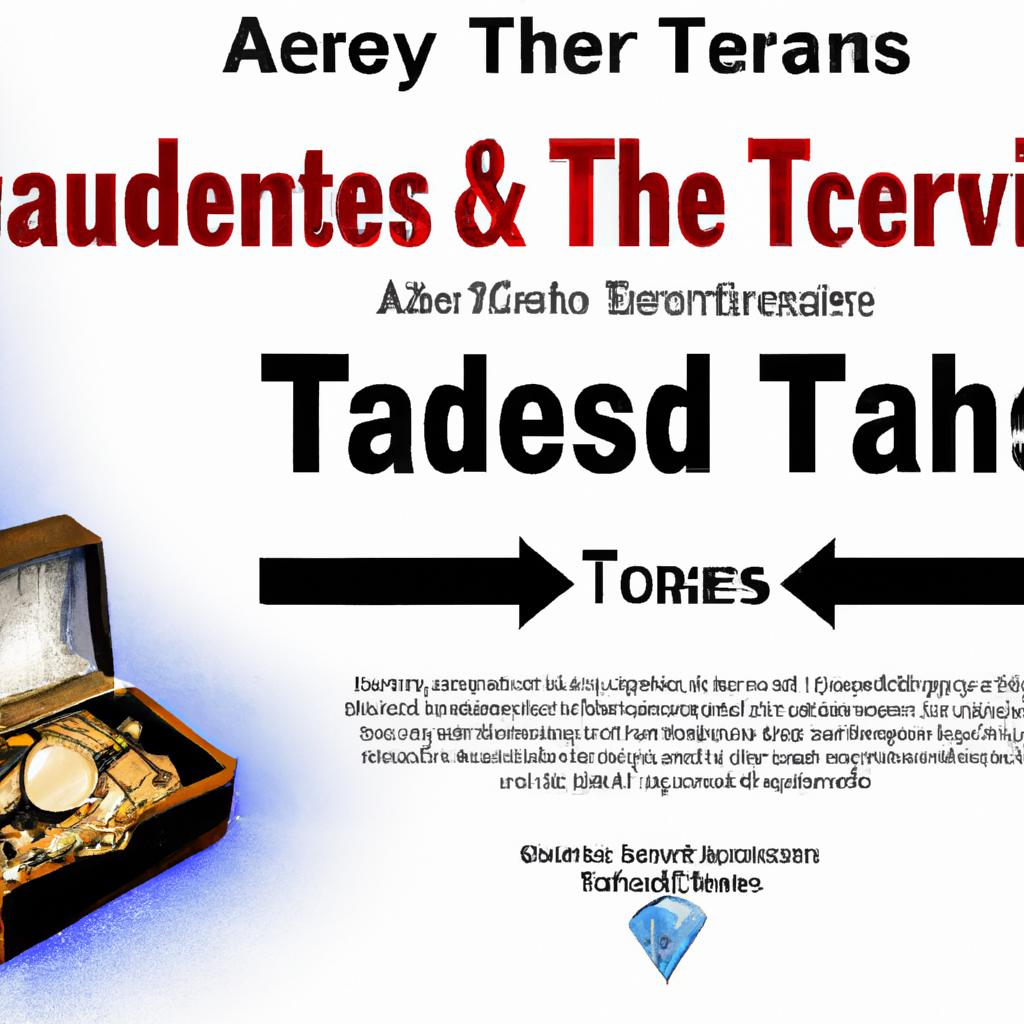Unraveling the financial intricacies left behind by a deceased individual can often seem like a daunting task. From hidden assets to overlooked investments, the process of locating these assets can be complex and challenging. This article aims to demystify the process of asset searches for the deceased, providing insights and guidance for those tasked with this crucial aspect of estate management. Join us as we delve into the world of asset search for the deceased, revealing the tactics and strategies that can lead to a successful outcome.
Understanding the Significance of Asset Searches for Deceased Individuals
When a loved one passes away, it can be a difficult time for family and friends. Amidst the grieving, it’s crucial to consider the deceased individual’s assets and financial situation. Conducting an asset search for a deceased person can provide valuable information that can assist with estate planning, debt settlement, and inheritance distribution.
Asset searches for deceased individuals can reveal a variety of assets, including:
- Real estate properties
- Bank accounts
- Investment accounts
- Retirement accounts
- Life insurance policies
- Business interests
By conducting an asset search, you can ensure that all assets are accounted for and properly distributed according to the deceased individual’s wishes or state laws. This process can help prevent disputes among family members and ensure that the estate is settled smoothly and fairly.
Grasping the Process of Conducting an Asset Search for Deceased Estate
Embarking on the process of conducting an asset search for a deceased estate requires a systematic approach to ensure all assets are properly identified and accounted for. This process typically involves a series of steps that need to be meticulously executed to maximize the chances of locating all assets belonging to the deceased individual.
An essential step in the asset search process is to gather all relevant documentation related to the deceased individual, such as wills, trusts, financial statements, and tax returns. This information serves as a guide for identifying potential assets and liabilities that need to be addressed during the probate process.
Next, it is crucial to conduct a thorough search of various databases, both online and offline, to track down any financial accounts, real estate holdings, investments, or other assets that may be linked to the deceased estate. This may involve working with financial institutions, government agencies, and other relevant parties to obtain a comprehensive list of assets.
- Document Collection: Gather wills, trusts, financial statements, and tax returns.
- Database Search: Conduct a comprehensive search of online and offline databases for assets.
- Financial Institutions: Collaborate with banks and other financial institutions to identify accounts.
Effective Methods for Locating Assets of a Deceased Person
When conducting an asset search for a deceased individual, it is important to approach the task with a systematic and thorough methodology. By following key strategies, you can navigate through the complexities of locating assets and ensure a successful outcome. Here are some tips to help you efficiently locate the assets of a deceased person:
- Obtain a copy of the will: Start by obtaining a copy of the deceased person’s will, as it will provide valuable information about the assets they owned and how they were distributed.
- Search public records: Utilize online databases and public records to search for property records, financial accounts, and other assets owned by the deceased.
- Contact financial institutions: Reach out to the deceased person’s banks, investment firms, and insurance companies to inquire about any accounts or policies in their name.
- Hire a professional: If the asset search proves to be challenging or overwhelming, consider hiring a professional asset locator or probate attorney to assist you in the process.
Guidelines for Conducting a Comprehensive Asset Search in Probate Cases
When conducting an asset search in probate cases, it is crucial to follow a systematic approach to ensure a thorough investigation. Here are some guidelines to help you navigate this process:
- Start with the Basics: Begin by gathering essential information about the deceased, including their full name, date of birth, date of death, and last known address. This information will serve as your starting point for the asset search.
- Review Public Records: Search public records such as property records, court documents, and business registrations to identify any assets owned by the deceased. This information can provide valuable insights into the deceased’s financial situation.
- Consult with Professionals: Consider hiring a private investigator or an attorney with experience in probate cases to assist you with the asset search. These professionals have the expertise and resources to uncover hidden assets and navigate complex legal issues.
| Asset Type | Location |
|---|---|
| Real Estate | County Property Records |
| Bank Accounts | Financial Institutions |
| Investments | Brokerage Firms |
By following these guidelines and leveraging the expertise of professionals, you can conduct a comprehensive asset search in probate cases to ensure that all assets belonging to the deceased are accounted for and properly distributed to beneficiaries.
Key Takeaways
As we navigate the complexities of handling the affairs of our departed loved ones, conducting an asset search for the deceased can provide closure and clarity in uncertain times. By unraveling the financial legacy left behind, we can honor their memory and ensure their assets are properly accounted for. Whether seeking closure or seeking answers, the process of asset search for the deceased can bring peace of mind and a deeper understanding of their financial footprint. May this journey of discovery lead you to a place of solace and understanding, as we bid farewell to those who have passed on but will forever remain in our hearts.
 **Title: Uncovering Hidden Treasures: How to Conduct an Asset Search for the Deceased**
**Title: Uncovering Hidden Treasures: How to Conduct an Asset Search for the Deceased**
In the unfortunate event of losing a loved one, dealing with their assets can be a complicated and overwhelming process. It’s not uncommon for assets to be hidden or overlooked, which can result in missed opportunities for the beneficiaries. Conducting an asset search for the deceased can help uncover hidden treasures and ensure that the rightful heirs receive their inheritance.
**Benefits and Practical Tips**
1. **Identifying Assets**: Conducting an asset search can help identify all the assets owned by the deceased, including bank accounts, real estate, investments, and other valuable possessions. This can prevent assets from being lost or forgotten, ensuring that they are properly distributed according to the deceased’s wishes.
2. **Locating Hidden Assets**: In some cases, assets may be hidden or unknown to the beneficiaries. An asset search can help uncover these hidden assets, ensuring that nothing is overlooked during the probate process.
3. **Preventing Fraud**: Conducting an asset search can help prevent fraud or misrepresentation of assets, ensuring that the estate is distributed fairly and according to the law.
4. **Maximizing Inheritance**: By conducting a thorough asset search, beneficiaries can maximize their inheritance by ensuring that all assets are accounted for and properly distributed.
**How to Conduct an Asset Search for the Deceased**
1. **Gather Information**: Start by gathering as much information as possible about the deceased, including their full name, date of birth, social security number, and any known addresses or locations where they may have owned property or assets.
2. **Check Public Records**: Search public record databases, such as county records, property records, and court records, to identify any assets owned by the deceased. This can include real estate holdings, business ownership, and other valuable assets.
3. **Contact Financial Institutions**: Reach out to financial institutions where the deceased may have held accounts, such as banks, investment firms, and retirement accounts. Request information about any accounts in the deceased’s name and the value of these accounts.
4. **Search Safe Deposit Boxes**: If the deceased had a safe deposit box, be sure to search the contents for valuable assets, such as jewelry, important documents, or cash.
**Case Studies**
1. **John Doe**: After John Doe passed away, his family conducted a thorough asset search and discovered that he had a life insurance policy that they were unaware of. This insurance policy provided a significant payout that helped cover the deceased’s outstanding debts and provided financial security for his beneficiaries.
2. **Jane Smith**: When Jane Smith’s husband passed away, she conducted an asset search and discovered that he had hidden bank accounts under a different name. By uncovering these hidden assets, Jane was able to secure her financial future and provide for her children.
**First-Hand Experience**
“I recently went through the process of conducting an asset search for my late grandfather, and it was a challenging but rewarding experience. By searching public records, contacting financial institutions, and investigating potential hidden assets, I was able to uncover valuable assets that had been overlooked. This process not only helped me secure my inheritance but also provided closure and peace of mind during a difficult time.”
In conclusion, conducting an asset search for the deceased can help uncover hidden treasures and ensure that assets are properly distributed to the rightful beneficiaries. By following these practical tips and strategies, beneficiaries can maximize their inheritance, prevent fraud, and ensure that the deceased’s wishes are carried out. If you’re facing the difficult task of managing a loved one’s estate, consider conducting an asset search to ensure that nothing is overlooked and that all assets are accounted for.


